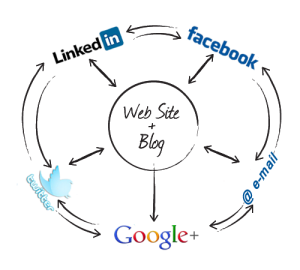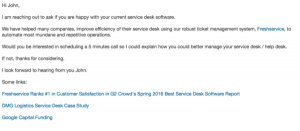5 Types of Loans to Help Investors Grow Their CRE Portfolios

It isn’t difficult to find deals when building your commercial real estate (CRE) portfolio. The tricky part is the funding.
CRE is one of the most lucrative portfolios, offering advantages over residential investments, although interest rates can be higher. Commercial investment property loans are one of the reasons why.
To understand how to invest in this sector successfully, you need to know how the loans work and which options will serve you best. Several loans are available to commercial property investors, but each has its own rules. The one that works best for your needs depends on the circumstances.
For example, some investors may use multiple loan types to keep their CRE portfolio growing.
DSCR Loans
DSCR stands for debt-service coverage ratio. As the name suggests, DSCR loans measure available cash flow to current debts a business must pay. These loans work well to assess the financial health of a company or investor, helping determine whether a commercial property will produce enough income to pay for monthly loan payments.
When calculating DSCR, funding companies divide the net operating income by the total debt service. Net operating income is the revenue minus the cost of equity capital. The total debt service includes principal and interest payments on any outstanding loans.
Typically, a DSCR score must be above 1.25 to get financing. Anything under 1.00 suggests financial difficulties for an investor or company. A net operating income of 100,000 dollars and a total debt service of 60,000 creates a DSCR score of 1.67. However, if that same company had a debt of 95,000 dollars, that score is 1.05.
Hard Money Loans
Hard money loans are a safe haven for investors with less-than-stellar credit histories.
This short-term loan is a quick and easy way to get funding for commercial investment property. The drawback is the interest rates are high, and the repayment period is short. The investment is also collateral for the loan, so that combination makes this a risky option.
Hard money loans are typically available from non-banking sources, too. So, you’ll get them from individual investors, financing companies, or investment groups. Given the terms of the loan, this is an option for flippers. If you want to turn a property around quickly, then a hard money loan might make sense.
It doesn’t always work well for someone looking to retain the commercial rental property. It could be a quick fix if you know you have funding coming from another source, but waiting will mean losing the deal. A hard money loan could be a stopgap until funding becomes available because it is easy to get.
Hard money loans are also a way to improve the credit history of an investor looking to grow a CRE portfolio. However, it is a strategy that can work well or fail miserably. Investors must know the worth of the commercial property they want to buy before getting a hard money loan.
The amount requested should cover any repairs or renovations, too. Otherwise, you may end up with a property you can’t afford to fix up and have to sell it for less to pay off the short-term loan.
Permanent Loans
A permanent loan is a long-term mortgage loan offered once a property is complete and ready for use. The amortization period tends to be 15 to 30 years. The average amortization period is 25 years. Funding can come from banks, credit unions, or even life insurance companies.
Permanent loans tend to replace construction loans taken out for new projects. The permanent loan usually has a lower interest rate. So, it allows you to pay off the construction loan and refinance the new property. For this reason, a permanent loan is usually the first loan on the property.
However, getting a permanent loan on an existing property is possible. The age of the property would help determine the amortization period. A property over 30 years old may have a shorter repayment period.
Construction Loans
Some investors look to enhance their portfolios by building new commercial properties.
That is where a commercial construction loan comes in handy. It covers the property development cost, including land, supplies, and labor. The repayment period is based on the building schedule presented in the application process.
A construction loan can allow you to keep a manageable balance sheet during building development. Payments during this time are often interest only, so you don’t pay on the principle until construction is complete. At that point, an investor would sell the new property or refinance to get a commercial loan.
The downside of construction loans is they don’t usually offer 100 percent financing. Instead, lenders target anywhere from 70 to 90 percent of the cost, requiring the investors to have front money for the difference.
Along with interest, you can expect to pay guarantee and processing fees. You may be able to roll these fees into the loan or pay them off over time after construction. The permanent loan might cover them, as well.
Who offers construction loans? One popular source is the Small Business Association (SBA). These SBA loans will go through a business lender such as a bank or credit union. The SBA offers a guarantee on the loan.
You can also get a loan directly from a bank or credit union. They will look closely at the investor before offering to fund, though. They will expect you to have an excellent credit history and not be new to commercial property investing.
Bridge Loan
A bridge loan is a short-term loan you can get to buy a property quickly to get a deal on it or upgrade one you already own.
The key word here is “bridge.” These loans, by design, have very short repayment periods, usually 12 to 36 months.
Investors should only use them to take advantage of a deal while they wait for long-term funding. The funding agent will probably ask for collateral on the loan, which is typically the property you are buying or renovating.
Finding the right commercial loan is critical to your investment strategy. Look for a lender specializing in the financing you need to get the best rate and chances of approval.
Image credit: Niklas Jeromin; Pexels; Thanks!
The post 5 Types of Loans to Help Investors Grow Their CRE Portfolios appeared first on ReadWrite.
(29)










